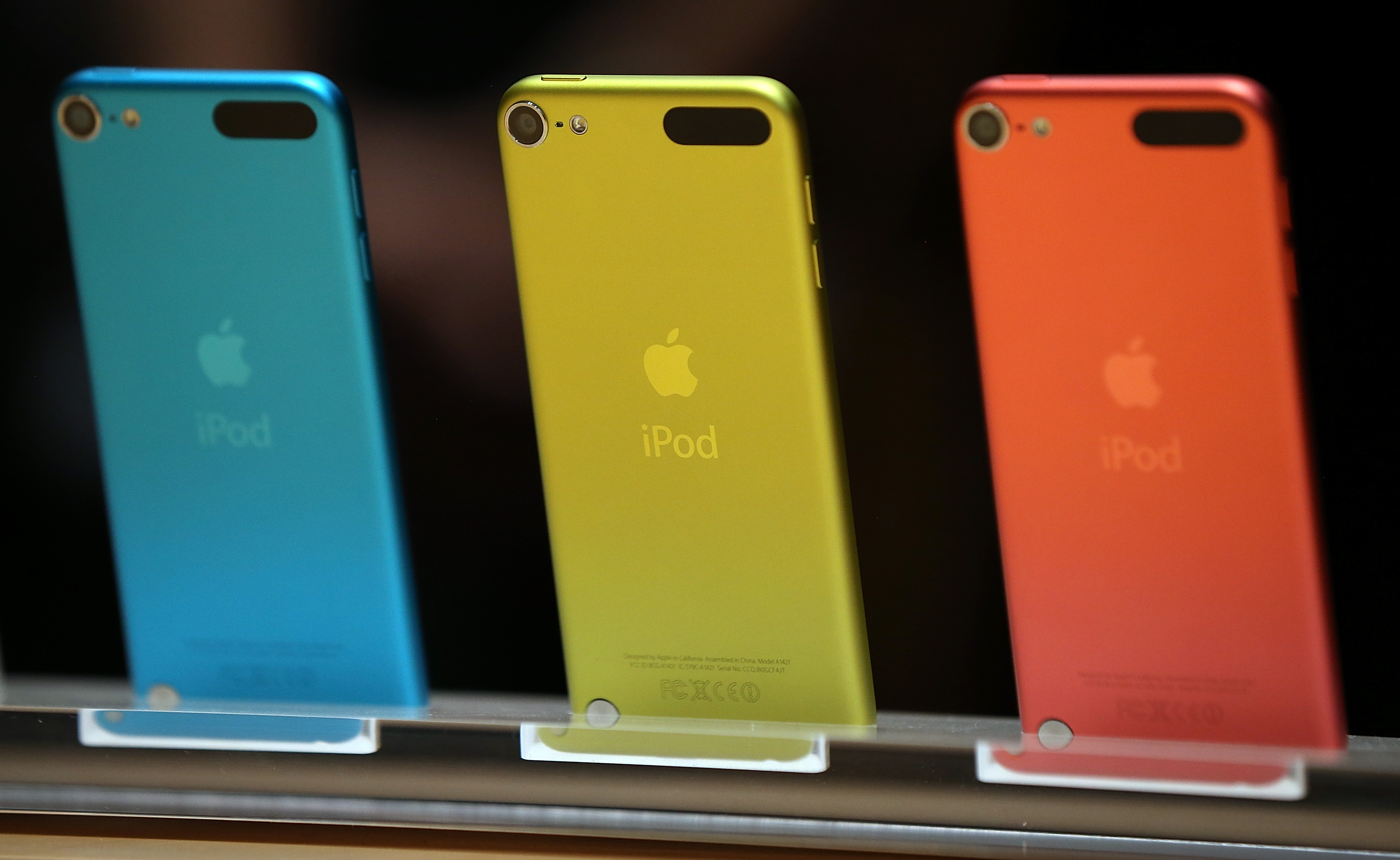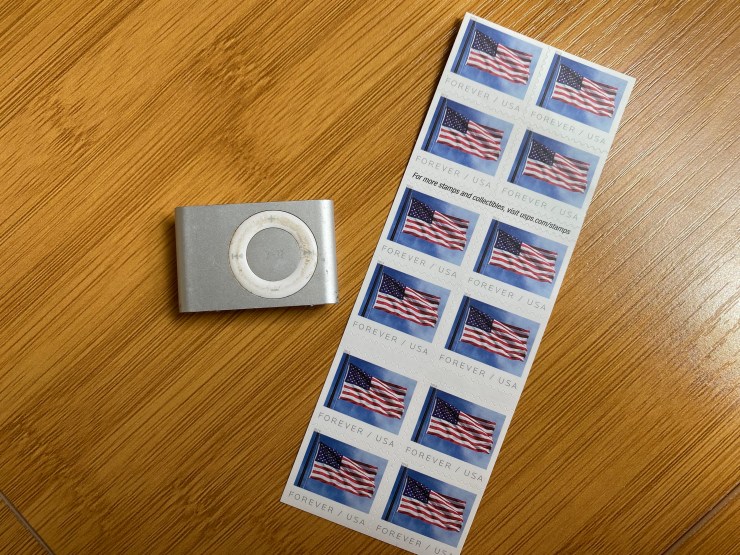Thanks for the memories, iPod

Apple says it will stop making its iconic iPod this year, after a more than two-decade run. When it first came out, the iPod was a sleek alternative to bulky CD or cassette players. And the “touch circle” feature below the two-toned screen felt like a revolution.
Over the years, the iPod got even smaller: no screen, just a clip and some buttons on the cute, little iPod Shuffle. By the time the last iPod Touch model came out three years ago, the iPod looked more like the other innovation it inspired, the iPhone.
It got us thinking about how the device changed mobile tech. Host Kimberly Adams spoke with Patrick McCray, who teaches about the history of technology and science at University of California, Santa Barbara. He said it was the iPod’s size that was groundbreaking. The following is an edited transcript of their conversation.

Patrick McCray: The hard drives were super tiny, so they were less than 2 inches in size. And the first-generation iPod had a storage capacity of what at the time seemed to be a huge amount, which was 5 gigabytes. But the small size and small dimensions of it made it so the product itself could be very small, and of course, slip into your purse or your pocket very nicely.
Kimberly Adams: What allowed those hard drives to be that small, that was so groundbreaking?
McCray: So if you go back to 1988, there were two physicists working independently, one in France and one in Germany. And they almost simultaneously discovered something called giant magnetoresistance, the discovery that tiny changes in magnetism can produce unexpectedly strong electrical signals. It was a basic physics discovery that allowed for companies like IBM to make supersensitive hard drives that could be both smaller but also more compact and hold more data. And then that proved to be the key technology that then helped make the iPod possible when it was introduced by Apple in 2001.
Adams: Last week, Apple announced it’s going to discontinue the iPod. So given that you’re a tech historian, how does that make you feel?
McCray: Well, technology has run its course. And the iPod had a great run. I mean, it was for sale for over two decades. I remember having one of the very first ones when they came out, which at the time seemed absolutely amazing and revolutionary. And this week, when I learned that they were going to be discontinued, I went out and bought one of the new iPod Touches. And, again, it’s really remarkable to see how the technology has changed. They no longer have the hard drives in them in the way that I was describing. But now all of the memory capacity, of course, is solid state, like flash drive technology, the way that you have on your iPhone. And the one that I just bought has 256 gigabytes of memory, compared to the original 5 gigs that they came with. So that’s quite an impressive change over two decades.
Adams: Yeah, talk more about what it meant in the history of tech. Where does the iPod sit?
McCray: It’s sort of represents the increased ability to carry around more music and more podcasts. Once you could carry all that creativity around in your pocket, that probably helped spur some of the activities with podcasts and things like that.
Adams: Back then, when the iPod first came out, this tech that you could store that much information in such a small package was a pretty big discovery. How do you think our lives might be different today without it?
McCray: I think the beauty of the iPod was that it took a really amazing piece of commercial product design that also had some amazing technological capacities with the supersmall hard drives, [and] Apple also connected that to the iTunes Music Store. Then, you have an ecosystem that allows people to easily buy music and download it and walk around with it.
Adams: What are you going to do with your new iPod?
McCray: I’m gonna use it for traveling. I mean, I’m kind of excited to have it as kind of a music-only thing that I can have on airplanes and just kind of toss my iPhone in the bag and not worry about it and then just have this little thing that’s got my music and podcasts on it. And thankfully, it isn’t connected to messages and email and stuff like that. And I can just sit back and listen to “Marketplace.”
Related audio: More from our listeners
One of our listeners, Crystal Ligori, sent us her iPod story:

“In 2008, I had just gotten an iPod Shuffle. For those not in the know, it’s slightly larger than a postage stamp and had really simple controls to play, pause or skip a song. What it didn’t have was a display screen, so there was no way to know the song name or the artist while you were listening.
“I was newly dating someone and about to head home for the holidays, complaining about a lack of music for the trip. My boyfriend at the time took the opportunity to make me a mix tape of sorts, which I listened to over and over again on my week away. For months. I never knew the band names or song titles from the mix, but would take note of them anytime I heard the songs in the wild — artists like Ray LaMontagne, Minus the Bear, Frightened Rabbit.
“And snuck into the playlist, was an original — well, somewhat original — it was a cover that he did of Mr. Big’s “To Be With You,” sung all with cat meows. I knew at that point that this was my person. Thirteen years later, that iPod still sits in my husband and I’s home in Portland, Oregon, a piece of forgotten technology and the start of a love story.”
Thanks to everyone who sent in iPod memories.
The future of this podcast starts with you.
Every day, the “Marketplace Tech” team demystifies the digital economy with stories that explore more than just Big Tech. We’re committed to covering topics that matter to you and the world around us, diving deep into how technology intersects with climate change, inequity, and disinformation.
As part of a nonprofit newsroom, we’re counting on listeners like you to keep this public service paywall-free and available to all.
Support “Marketplace Tech” in any amount today and become a partner in our mission.


















